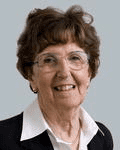
Following introductions by Petra Dilman and Dr. Stephen Edelson, Margaret Bauman, MD, discusses the many medical challenges those aging with autism face. She highlights the lack of medical training and research for adults and seniors with autism and underscores the need for increased education and advocacy. The speaker outlines challenges associated with preventative screenings, diagnosis of co-occurring conditions, primary care physicians, examination time constraints, and low government and health insurance reimbursement. Bauman speaks from her professional experiences and asserts the need for collaborative action to prepare for a better future. She closes with a question and answer session where she discusses guardian assignments and policy needs, disease prevalence in autism, and more.
This is a joint presentation by ARI and The World Autism Organisation.
Handouts are online HERE
In this webinar:
0:00 – Petra Dilman – World Autism Organization
5:20 – Dr. Stephen Edelson – ARI
7:30 – Dr. Margaret Bauman – child psychologist and why she speaks on adult experiences
10:45 – Medical problems for aging autistic adults
12:00 – ER, hospitals and insurance providers
14:30 – Medical concerns for adults
18:20 – Provider limitations
21:20 – Incentives for primary care physicians
22:10 – Diagnostic challenges
24:30 – Atypical behaviors as signs of discomfort
27:14 – Behaviors that suggest GI discomfort
31:28 – Summary of diagnostic challenges
32:20 – Medical conditions
35:08 – Medically related conditions
38:10 – Mental health conditions
39:15 – Dementia surveys and queries
40:40 – Illnesses common in old age and lack of research
41:48 – Preventative screenings
43:34 – What needs to be done
46:33 – Parting words
48:20 – Q & A
Petra Dilman introduces the World Autism Organization and gives a brief history of their work and collaborations with ARI (00:00). Dr. Stephen Edelson outlines the history and purpose of ARI (5:20) and introduces the presenter, Dr. Margaret Bauman, MD (6:30). Bauman emphasizes the importance of providing optimal – not minimal – medical care for adults and seniors with autism. She explains that due to the lack of medical care available to autistic adults, many pediatric practitioners have been obliged to carry on treating patients into adulthood (9:00).
Presently, she continues, individual needs and proper support mechanisms for autistic adults and seniors remain largely unknown (7:30). Bauman lists some of the medical challenges faced by aging autistic adults (10:45) and discusses some in detail:
1. Finding primary care physicians (PCP) willing to accept adults with autism or who have any expertise or experience to do so.
Few practitioners meet these parameters (11:30). Bauman describes this gap as a PCP shortage (18:25), noting the lack of medical education surrounding autism spectrum disorder. She states that, given the prevalence of autism, it is “inconceivable, regardless of what specialty somebody may eventually go into, that they aren’t going to come across one or more patients on the autism spectrum” (45:06). Further, time constraints on PCP visits (i.e., four 15-minute appointments per hour) do not allow enough time to assess many individuals with autism (19:00). Government medical records require thorough paperwork documentation as well, and there is relatively low Medicaid/Medicare reimbursement (20:40). Overall, she continues, incentives for PCP to take on patients with autism are minimal. Therefore, individuals needing such services often have to use academic hospitals where wait lists are three to six months long (21:20).
2. ER and hospital staff (12:00) and insurance providers (13:30) are not prepared to deal with the complex multiplicity of care that accompanies autism.
3. Medical conditions often present differently in adults with autism, creating diagnostic challenges (22:10).
For example, Bauman continues, autistic individuals often have difficulty verbalizing or pinpointing issues or discomfort (i.e., where it hurts, how it hurts, what the problem is) due to sensory processing differences and communication difficulties (23:40). She notes that atypical or disruptive behaviors may be signs of pain and discomfort, even if individuals cannot communicate their pain (24:30). The speaker shares personal experiences when she sent individuals with symptoms not generally associated with gastrointestinal (GI) issues to the gastroenterologist, where they were adequately diagnosed (24:50). She asserts that practitioners need to “… think beyond their own discipline” and consider unusual behaviors as interconnected. She reiterates that, due to the lack of education surrounding autism, even specialists may not know how to diagnose autistic adults and seniors (23:00) properly and urges viewers to “think beyond the obvious” (26:30). Bauman highlights the prevalence of GI issues in autism and asserts that practitioners and specialists must be trained on how differently symptoms present compared to the non-autistic population (30:30).
The presenter lists medical conditions that commonly co-occur with autism, such as seizures, metabolic disorders, diabetes, and more (32:20). Bauman describes each condition and its relevance to autistic adults (33:30), noting the lack of routine screenings for adults and seniors with autism (41:48). She states that chronic pain, dental issues, sleep disorders, motor challenges, and even sensory processing issues can be significant factors that are part of, or contributing to, such medical conditions (35:08). Bauman touches on the acceleration of medical conditions with age, especially within the autistic population, and discusses gaps in research on diseases related to autistic adults and seniors (36:20).
Bauman asserts that there should be more stress on the mental health conditions associated with autism, especially during and following the pandemic (38:10). Such conditions include frequent mental distress, anxiety, depression, PTSD, social isolation, and dementia (38:10). She discusses recent studies showing an increased diagnosis of dementia in adults with autism and questions how one defines such conditions in individuals with potential developmental delays (39:15). Bauman highlights the evident lack of research and publications on other illnesses common in old age (i.e., multiple sclerosis, Alzheimer’s) (41:00) and posits that we have little idea what these issues look like in adults with autism (40:40).
The speaker reiterates the need to create methods by which we can begin to evaluate autistic seniors and adults in meaningful ways (44:10). She underscores that medical problems present in childhood often persist throughout the lifespan, along with other conditions that occur with aging (43:34). She tells of personal experiences consulting rehabilitation hospitals when autistic adults are admitted and notes how unprepared many are for communicating with and treating these patients (45:30). Bauman says that “family and professional advocacy for policy change is sorely needed” as it will take “several villages” to begin to understand how to effectively care for and assist autistic adults and seniors (46:18). She emphasizes preparing for the future and bringing greater awareness of the needs of aging autistic adults before opening the question and answer session (48:20).
About the speaker:
Take the knowledge quiz
Can’t see the quiz below? Take it online HERE
Autism & Aging – Cognition and Well-being
When we become older, we all hope to become wiser and happier, but we also know that someday we will decline. This decline is apparent in both cognition and
Study finds that employees with autism are less likely to exhibit “bystander” effect
Employees with autism spectrum disorders (ASD) may contribute to businesses in a unique way because they are less likely than neurotypical individuals to exhibit the “bystander” effect, according to a new
Prevalence of autism in adults increasing rapidly in the U.S.
The prevalence of autism spectrum disorders (ASD) among adults in the United States is rising rapidly, according to a new study. Eric Rubenstein and colleagues analyzed a random sample
Autistic adults show enhanced generosity toward strangers
Adults with autism spectrum disorders (ASD) tend to be more generous to strangers than their neurotypical peers are, according to new research. In the study, Paul Forbes and colleagues explored differences
From Special to H.A.P.P.Y.
Peter Vermeulen, Ph.D., considers a positive approach to psychoeducation for autistic individuals. He draws on over 25 years of experience to illustrate contemporary changes in autism intervention focus and discourse. The speaker
Older adults with ASD at higher risk for many health issues
A large-scale study from researchers in Sweden and Poland indicates that older adults with autism spectrum disorders (ASD) are at significantly higher risk than their non-autistic peers for a range of







